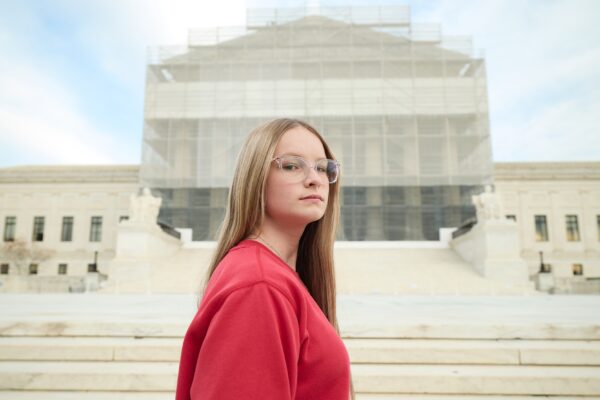Congressman Steve Rothman (D-NJ) recently introduced the Juror Non-Discrimination Act (H.R. 5848) to prohibit discrimination against any juror on the basis of sexual orientation or gender identity. Congressman Rothman stated, “[t]he fact that it is still lawful for lawyers to dismiss potential jurors solely on the basis of a person’s sexual orientation or gender identity is wrong and has to change.” There is no rational relationship between one’s race, color, religion, sex, national origin or financial status and one’s ability to administer justice as a juror.
Federal law already prohibits discrimination based on those factors, but says nothing about discrimination based on sexual orientation or gender identity. It is time to eliminate this troubling gap in our antidiscrimination laws.
The process of selecting a jury for a trial begins with creating the “jury pool” – the group from which jurors are actually drawn to weigh evidence at trial. Federal law requires jurors be selected from a “fair cross-section of the community in the district or division wherein the court convenes.” As the Supreme Court noted over a century ago in Strauder v. West Virginia, the jury should be drawn from a group “composed of the peers or equals [of the defendant]; that is, of his neighbors, fellows, associates, persons having the same legal status in society as he holds.”
Once a jury pool has been assembled, defense attorneys and prosecutors have the opportunity to question potential jurors. Usually, attorneys are trying to determine whether jurors have personal knowledge of the case or any biases that would prevent that person from weighing evidence impartially. If an attorney believes a potential juror is not qualified because of some bias, the objecting attorney can remove the juror for cause. But attorneys on both sides also have a certain number of strikes for any or no reason at all – a peremptory strike.
For years, peremptory strikes, while limited in number, were not subject to challenges by opposing counsel. In essence, if an opposing attorney or judge ever asked an attorney exercising a peremptory strike why she wanted a potential juror excused from serving, that attorney could simply answer, “Because I do.”
However, in Batson v. Kentucky, the Supreme Court examined the jury selection process and the use of peremptory strikes. The Court found that prosecutors could not exclude racial minorities, in this case African Americans, from juries based solely on their race, nor based on the assumption that members of a particular race are incapable of fairly and impartially weighing evidence. Justice Powell correctly recognized that intentional discrimination against one group of citizens “undermine[s] public confidence in the fairness of our system of justice.” The Batson challenge remains a strong protection against racial discrimination in jury selection today.
Federal courts have struggled in recent years to apply the Batson decision to juror dismissals based on sexual orientation and gender identity. For example, Chris Lewis, a potential juror in a robbery case, was excluded from a federal jury based on the fact that she was transgender – or as the judge stated, appeared to be a “cross-dresser or transvestite.” When the defendant challenged the peremptory strike of Lewis, the federal district court hearing the challenge said its hands were tied and no relief could be granted, as “cross-dressers” did not constitute a cognizable group as defined by Batson. Federal courts have endorsed this position and refused to extend Batson to sexual orientation or gender identity discrimination.
Despite clear evidence of discrimination against LGBT individuals in the jury selection process in federal court, California state courts have prohibited peremptory strikes based solely on sexual orientation since 2000. In a ground breaking ruling, a California appellate court found that gay men and lesbians constitute a cognizable group with a shared experience of discrimination and social stigma similar to racial minorities and women. Therefore, to systematically strike them from serving on a jury based on their sexual orientation would violate the California Constitution. As Justice William Beckworth put it, gay men and lesbians constitute a group because they “share the common perspective of having spent their lives in a sexual minority, either exposed to or fearful of persecution and discrimination.” To say this entire group, based solely on their sexual orientation or gender identity, cannot serve on a jury and weigh evidence impartially is a preposterous message, and one Justice Beckworth refused to send.
Most states do not have the same protections as California, and still fail to recognize that LGBT citizens deserve the same opportunity to engage in this important civic duty. The Juror Non-Discrimination Act would bring our federal justice system closer to eliminating juror discrimination and ensuring equal jury participation opportunities for all citizens.
Despite the advances made over the years, discrimination against many minority groups, including LGBT Americans, persists in the jury selection process today. A criminal defendant has the right to a jury truly representative of his community; a citizen has the right to be considered for that jury not based on stereotypes and prejudices, but on his or her ability to impartially weigh evidence and administer justice. This legislation represents an important step towards creating a jury that is truly of one’s peers.
Learn more about LGBT rights: Sign up for breaking news alerts, follow us on Twitter, and like us on Facebook.

